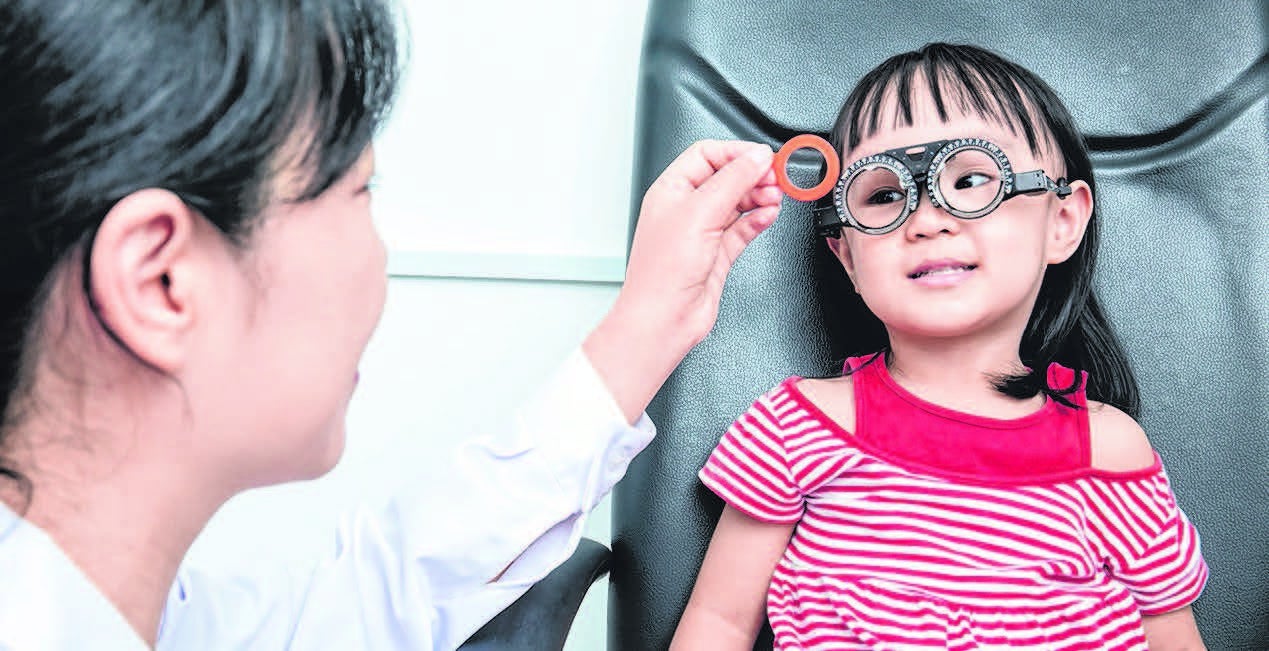
Give children a clear future
Children in Singapore are suffering from a high myopia rate, which also happens to be one of the world’s highest rate. How to help prevent children myopia, or slow down the speed of myopia, continues to be a concerning subject of parents.
Head and Senior Consultant, Paediatric Ophthalmology and Strabismus Department, Singapore National Eye Centre, Associate Professor Audrey Chia, suggested that parents allow children to outdoor activities to prevent children with myopia.
This is due to outdoor light can cause the retina to release dopamine to inhibit myopia. She said that with the change in lifestyle habits, people nowadays engage in lesser outdoor activities. Local children spend an average of three hours a week on outdoor activities, in contrast to European children of the same age, an average of 14 hours per week, who experience a lower rate of myopia.
'Small glasses' why more and more?
Studies have shown that up to 80% of 18-year-olds suffer from myopia, of which 20% of patients have high myopia. In addition, people with high myopia, there is a relatively high risk that they may suffer from other eye diseases, such as: retinal detachment, macular degeneration, early cataract and glaucoma risk in future.
Assoc Prof Audrey Chia said that children with myopia can be associated to genetic and environmental factors. In addition, the parent's way of life will also affect the child's work and rest. If the parents of children have myopia, the child is more likely to have myopia.
If children are engaged in activities for a long time, such as reading, watching TV or playing computer games, the risk of myopia is higher than that of children who are often engaged in outdoor activities. She said: "Parents should make their children one to two hours a day to outdoor activities, such as: cycling, sports, etc." If the child has deepening myopia, consider the use of atropine eye drops to slow down the speed of myopia.
How to prevent myopia
Many people mistakenly believe that laser vision correction surgery can solve the problem of myopia, it is not true. Surgery can only correct the accuracy of vision, but can not improve the eye which has grown too long, so it is best to prevent myopia instead of curing it later when it happens.
- Encourage children to cultivate outdoor activities from childhood.
- When reading, the distance between the book and the eyes should be between 30 and 40 centimeters.
- Do not read in direct sunlight or dark places.
- Develop a good eye health habits.
How to control the growth of myopia
Myopia will gradually increase every year by 1.00D, until the children into puberty, myopia will be deepened to 700 to 800 degrees. How to slow down the speed of children with myopia?
Glasses
This kind of glasses can be divided into several kinds of glasses, help to delay 10% to 20% of myopia, safe but the price is not cheap.
OK corneal refractive treatment contact lenses
Specially designed hard contact lenses, to wear them to sleep at night, remove it the next morning when awake, the normal vision will last 12 to 18 hours, so that patients engage in daily activities per normal, as though they are not suffering from myopia, but may lead to sensitive and infection problems.
Atropine eye drops
Low doses of atropine (0.01%) were safer and more comfortable than high-dose atropine 1% drops. In addition to the impact of the expansion of the pupil to a minimum, but also does not lead to dry eye or eye allergies occur.
Assoc Prof Audrey Chia pointed out: "According to the second phase of Atopine study, we learned that low 0.01% of the atropine eye drops, can control myopia increased by 50% to 60%, and no side effects, children are more receptive to this treatment."
The third phase of the ATOM program will allow children who have not yet had myopia, but at least one of my parents' myopia is "moderate myopia" or children with mild myopia use atropine eye drops to assess atropine Whether it can effectively prevent or slow down the speed of children with myopia.
Parents who wish to have their children involved in the trial can call 6322-4500 or 6322-4501 on weekdays or email the name and contact number to atom3@seri.com.sg to contact the research team.
Contributed by

Chinese
Lianhe Wanbao - SNEC doctor on myopia.pdf














 Get it on Google Play
Get it on Google Play